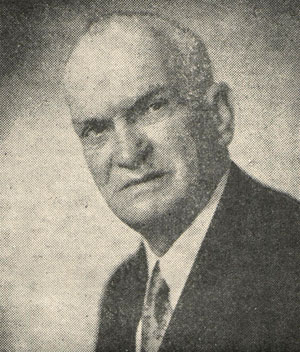| | Robert Elsie | AL Art | AL History | AL Language | AL Literature | AL Photography | Contact | |
Robert Elsie
Texts and Documents of Albanian History
BACK | AL History

![]()
Rexhep bey Mitrovica
(1887-1967).
1921
Rexhep Mitrovica and Bedri Pejani:
A Kosovar ProtestBy 1921, Kosova was firmly encompassed within Serbia, though against the will of the majority of its people. Albanian resistance had been largely crushed in Drenica in November 1920. The Belgrade government's "Decree on the Colonization of the New Southern Lands" was now facilitating the takover by Serb colonists of large Ottoman estates and of land seized from Albanian rebels. It is within this context that two Kosovar intellectuals, Rexhep bey Mitrovica (1887-1967), Albanian minister of education in Tirana, and Bedri bey Pejani (1885-1946), member of the Albanian parliament and head of the People's Party, sent this letter of protest, addressed to Count De Salis in the Vatican, to the Western powers, hoping for assistance.
Tirana, 4 April 1921
Excellency,
Confident of the good will you have always had the kindness to show for our sorrowful cause, we venture to present to you an overview of the dreadful situation of Kosova, as we would explain it to a member of our own families.
a) The system of extermination set up by the Serb regime that ravaged our native land in 1913, 1914, 1918, 1919 and 1920 is continuing.
b) Taking advantage of impediments of all sorts that the Albanians are encountering in their struggle to establish an independent Albania (1920), the Serbs have redoubled their audaciously criminal efforts to annihilate our brethren and replace them with Cossack Montenegrin colonists. For example, the following Albanian regions were colonised in just the last six months:
Podgur (district of Ipek [Peja]), Drenica (district of Vulchitren [Vuçitërn]) and all along the railway line Mitrovica-Üsküb [Skopje]. This colonisation is continuing feverously to the ethnic and economic detriment of the Albanians.
c) With the double aim of promoting emigration and extermination on the one hand and of stimulating colonisation on the other, the Belgrade Government has recently issued an armistice proclamation stipulating the following, among other things: "All Albanian outlaws and revolutionaries who were compromised by events preceding the implementation of the constitutional statute in the conquered and annexed territories (1919) will be amnestied if they give themselves up by 10 March 1921. Those who do not give themselves up by this date will have their families interned, their homes destroyed and their property confiscated." This amnesty is obviously absurd because all the revolutionary events that took place in Kosova happened after the application of the said statute. Consequently,
d) The Serbs cynically annexed the former kingdom of Montenegro without even taking the trouble of dealing with the following issue:
For purely diplomatic reasons, the Montenegrins expanded in 1878 and in 1913 to the territorial detriment of the Albanians. The said kingdom, as thus created, includes the purely Albanian regions of Dulcigno [Ulqin/Ulcinj], Antivari [Bar], Tuzi, Hoti, Gruda, Placa, Gusinje [Gucia], Rozhaje, Ipek [Peja] and Gjakova.
To whom should these regions unjustly stolen from their motherland be given if the Serb annexation is definitively sanctioned by the Allies and their associates? What future could Albania have if its borders with Serbia, in tumult and revolt, are brought right to the doorstep of Scutari [Shkodra ] in Albania?
e) This annexation was supported exclusively by Panslavism in the Balkans and already cost us the almost complete destruction of Plava, Gusinje, Hoti and Gruda in 1919 and of Kastrati, Shkreli, Dibra and Mati (Albanian-Serb armed conflict of 1920).
Could a partial solution be found to the Montenegrin question which, from the very start, has had ruinous repercussions on the Albanian people and indeed for independent Albania? Could a solution be found that would not be to the detriment of the Albanians and of those who defend the Albanian cause?Hoping firmly for an swift improvement in our situation with the much-valued support of our friends, we beg Your Excellency to accept the expression of our profound respect.
On behalf of the colony of Kosova in central Albania,
Rexhep Mitrovica, Professor Bedri Pejani,
former Member of Parliament Editor-in-chief
for the Gjakova Highlands of the newspaper Populli
[from: Bejtullah Destani (ed.), Albania and Kosovo: political and ethnic boundaries, 1867-1946. Documents and maps (Slough: Archive Editions, 1999), p. 588-589. Translated from the French by Robert Elsie.]
TOP
